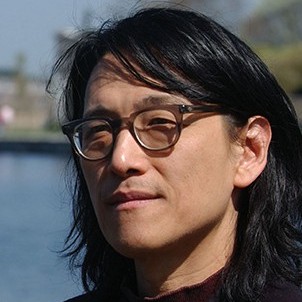People have been trying to kill me since I was born,
a man tells his son, trying to explain
the wisdom of learning a second tongue.
It’s an old story from the previous century
about my father and me.
The same old story from yesterday morning
about me and my son.
It’s called “Survival Strategies
and the Melancholy of Racial Assimilation.”
It’s called “Psychological Paradigms of Displaced Persons,”
called “The Child Who’d Rather Play than Study.”
Practice until you feel
the language inside you, says the man.
But what does he know about inside and outside,
my father who was spared nothing
in spite of the languages he used?
And me, confused about the flesh and the soul,
who asked once into a telephone,
Am I inside you?
You’re always inside me, a woman answered,
at peace with the body’s finitude,
at peace with the soul’s disregard
of space and time.
Am I inside you? I asked once
lying between her legs, confused
about the body and the heart.
If you don’t believe you’re inside me, you’re not,
she answered, at peace with the body’s greed,
at peace with the heart’s bewilderment.
It’s an ancient story from yesterday evening
called “Patterns of Love in Peoples of Diaspora,”
called “Loss of the Homeplace
and the Defilement of the Beloved,”
called “I want to Sing but I Don’t Know Any Songs.”
Published:
2008
Length:
Regular
Literary Movements:
Contemporary
Anthology Years:
2023
Themes:
Identity
Immigration
Love & Relationships
Poems of Place
Literary Devices:
Dialogue
conversation between two or more people as a feature of a book, play, or movie
Metaphor
a comparison between two unrelated things through a shared characteristic
Rhetorical Question
a question asked for effect, not necessarily to be answered

